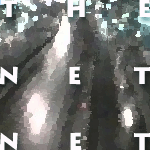Fergal Keane was finishing up four years of reporting in South Africa when he was asked to join a documentary team going to Rwanda, shortly after the President was assassinated in April 1994. Like many journalists, Keane was traumatized by his experiences in Rwanda -- and he was just seeing the aftermath -- but he published Season of Blood: A Rwandan Journey about a year after he left, and it has recently been reissued. Season of Blood combines history, diary, and essay into an unflinching and introspective snapshot of a truly horrible string of events. Fergal Keane wants to be absolutely certain that readers of Season of Blood walk away with much more than some salient facts about the disaster du jour.
Keane's book has three parts, a brief history of Rwanda and the Hutu-Tutsi conflict, a narrative of his trip, and a brief epilogue describing what he believes needs to happen to ensure lasting peace. This is quite simply a fascinating book from a narrative point of view. Rwanda's history is a shameful one, both from the colonial perspective and from the human perspective. It is, by and large, a history of oppression and exploitation of many different flavors. Keane's description of what he saw in Rwanda makes it clear that he is horrified by the suffering of the Tutsis and by the crass demagoguery and corruption of the Hutu government, but he doesn't try to whitewash Tutsi history. The Tutsis -- like the Belgians, Germans, and French after them -- arrived from some distant place to exploit the richness of Rwanda and Burundi, and it isn't much of a stretch to imagine a very long folk memory among the Hutus.
Season of Blood offers a variety of facts -- the small size of the Tutsi minority (15% of the population in both Rwanda and Burundi), the long history of Tutsi control and exploitation of Hutus (probably since the 14th century), the wrenching turn of the tables as the Hutus came into power (1959), the sheer frequency of genocidal massacre in Rwanda (every few years since 1959), and many glimpses into the Rwandan countryside and the refugee camps, the one strewn with bodies and the other peopled with the architects of the destruction. Keane also offers many thoughts and feelings, from his sometimes embarrassing discomforts while traveling through Rwanda to the recurring nightmare of being buried in bodies that plagued him after his return home. Season of Blood is an informative book, and it is a writerly book as well.
Keane is disgusted by the Hutu extremist propaganda that fanned the flames of April 1994, but his sympathy for today's beleaguered Tutsi minority is sophisticated and balanced against history. He is particularly concerned about the chances of the largely Tutsi Rwandan Patriotic Front to effect change in Rwanda with its politically correct -- but perhaps na´ve or even just wrong-headed -- stance that ethnicity shouldn't matter, that Rwanda should be tribe-blind, so to speak. Season of Blood: A Rwandan Journey is poignantly clear on this point: A folk memory of oppression was relatively easily manipulated into the bloody massacre of some 10% of the Rwandan population by their neighbors; peace will come only with patience and truly comprehensive coalition-building.



